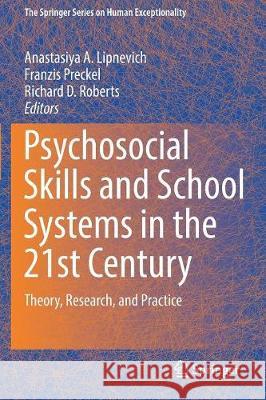Psychosocial Skills and School Systems in the 21st Century: Theory, Research, and Practice » książka
topmenu
Psychosocial Skills and School Systems in the 21st Century: Theory, Research, and Practice
ISBN-13: 9783319680361 / Angielski / Miękka / 2017 / 401 str.
Psychosocial Skills and School Systems in the 21st Century: Theory, Research, and Practice
ISBN-13: 9783319680361 / Angielski / Miękka / 2017 / 401 str.
cena 322,01
(netto: 306,68 VAT: 5%)
Najniższa cena z 30 dni: 308,41
(netto: 306,68 VAT: 5%)
Najniższa cena z 30 dni: 308,41
Termin realizacji zamówienia:
ok. 16-18 dni roboczych.
ok. 16-18 dni roboczych.
Darmowa dostawa!
Kategorie:
Kategorie BISAC:
Wydawca:
Springer
Język:
Angielski
ISBN-13:
9783319680361
Rok wydania:
2017
Wydanie:
2016
Ilość stron:
401
Waga:
0.87 kg
Wymiary:
23.5 x 15.5
Oprawa:
Miękka
Wolumenów:
01
Dodatkowe informacje:
Wydanie ilustrowane











